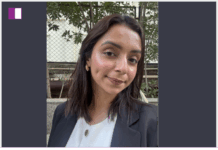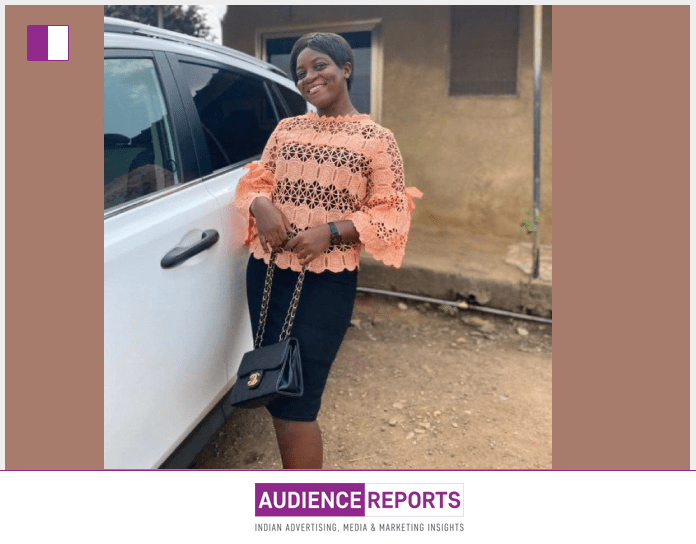Ellen Agyei-Barfi, a dedicated mental health professional, shares a story that holds valuable lessons far beyond the academic setting in which it takes place. In a recent LinkedIn post, Ellen Agyei-Barfi recounts a transformative experience from her time in tertiary education. It’s a story about facing fear, challenging assumptions, and discovering the importance of looking beyond the surface to find genuine human connection.
Ellen Agyei-Barfi begins by introducing us to a lecturer whose reputation preceded him—a man known among students for his strict demeanor, tough rules, and zero tolerance for misbehavior. Dubbed “Professor Fear-Inducer” by students, his classes were approached with trepidation. Ellen Agyei-Barfi, like many of her peers, had heard the warnings from older students, cautioning about his intimidating nature. They told stories of him dismissing students without hesitation, and these stories shaped Ellen’s perception of him long before she had the chance to truly know him.
However, as Ellen Agyei-Barfi learned through a fateful encounter, assumptions can often be misleading. One Thursday, during a quiz, she made what seemed like a small but potentially disastrous mistake: she forgot to write her name and index number on the answer sheet. Panic set in, and Ellen found herself dreading the consequences of this error. In her mind, this stern professor would surely be unforgiving. Despite her fear, Ellen Agyei-Barfi decided to confront the situation and seek his help, even though his reputation suggested it was a hopeless cause.
As Ellen Agyei-Barfi approached the professor’s office, her nerves got the best of her, and she began to cry. Expecting harsh judgment, she was shocked when the professor’s reaction was the complete opposite of what she had feared. Rather than scolding her or dismissing her concerns, he offered her a tissue, consoled her, and asked how he could assist. Ellen explained her mistake, and to her surprise, the professor kindly allowed her to correct it, advising her not to cry in the future and to simply voice her concerns. He left her with the reassuring words, “My office is always open to you.”
This moment marked a turning point in Ellen Agyei-Barfi’s perspective. From that day forward, her view of the professor was no longer defined by the rumors and assumptions she had carried into his classroom. Instead, she saw him as a compassionate mentor, someone who was genuinely interested in helping students succeed. Ellen made a conscious effort to get to know him better, attending his office hours, asking for advice, and seeking his guidance. Each interaction reinforced her new understanding of him, revealing a man who offered encouragement, valuable insights, and support—far from the intimidating figure she had once imagined.
Reflecting on this experience, Ellen Agyei-Barfi shares an important lesson: fear and misconception often prevent us from discovering the true nature of the people around us. Had she allowed the rumors to dictate her actions, she might have missed out on a life-changing mentorship. This realization led her to challenge her own assumptions and to approach others with an open mind, rather than letting preconceived notions shape her perceptions.
Ellen Agyei-Barfi’s story resonates deeply, not only within the academic world but in all areas of life. How many of us have missed out on valuable relationships, opportunities, or personal growth because we relied on hearsay instead of making the effort to understand someone on our own terms? Ellen Agyei-Barfi’s post encourages us to confront our fears and take the initiative to get to know people for who they truly are, not who we’ve been told they are.
Her story also highlights the significance of empathy in leadership and mentorship. As a mental health professional, Ellen Agyei-Barfi has likely encountered numerous situations where understanding and compassion are crucial. Her experience with the professor serves as a powerful reminder that even in positions of authority, showing kindness and offering support can have a profound impact on those seeking guidance. Ellen Agyei-Barfi’s willingness to engage with her professor, and his response to her vulnerability, created a space where learning extended beyond the academic material—into life lessons about courage, connection, and growth.
In addition to the life-changing mentorship she gained, Ellen Agyei-Barfi also points out the unexpected humor of the situation. Despite her initial fear and tears, the outcome was positive—not only did she score well on the quiz, but the professor even left a note on her paper praising her work. Looking back, Ellen Agyei-Barfi can laugh at her own fears and mistakes, finding joy in the fact that what once seemed like a disaster was actually the beginning of a meaningful relationship.
Ellen Agyei-Barfi’s story serves as an inspiration to all of us to re-examine how we approach others, especially when we are influenced by rumors or fear. It teaches us that vulnerability is not a weakness, but a strength that can lead to deeper understanding and more authentic relationships. Her message is clear: challenge your assumptions, face your fears, and open yourself to the possibility that people may surprise you in the best ways.
Ellen Agyei-Barfi’s experience is a powerful reminder of the importance of looking beyond the surface and rejecting preconceived notions. Whether in our personal or professional lives, her story encourages us to approach others with curiosity, openness, and empathy. By doing so, as Ellen Agyei-Barfi demonstrates, we may not only find mentors and allies where we least expect them, but we may also unlock opportunities for personal growth and transformation.




































